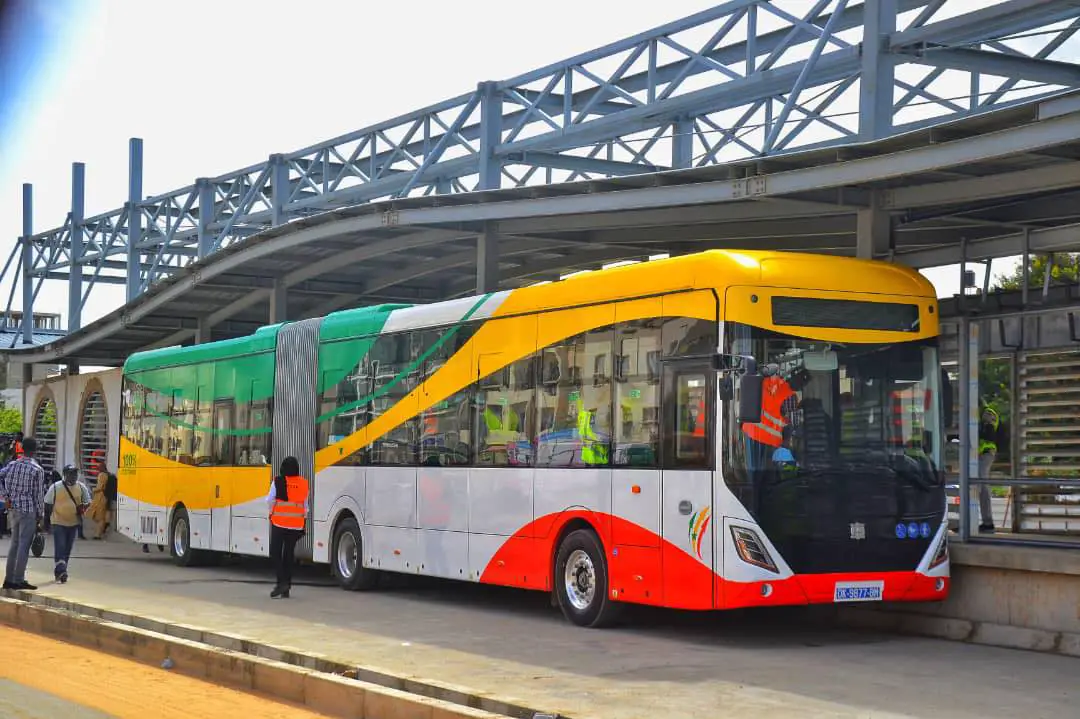Senegal recently launched the Dakar Bus Rapid Transit (BRT) system, the first all-electric BRT system in Sub-Saharan Africa.
The system is 18.3 kilometres long linking the Petersen bus station at Dakar Plateau (in the city centre) to the prefecture of Guédiawaye in the northern suburbs of Dakar. It passes through a total of 23 stations and 14 of the city’s most densely populated districts via four lines. One of the lines is “omnibus line” while the rest are “express” or “semi-express” lines.
Also Read: Project to widen and develop old Port of Dakar-Ruffisque Road in Senegal unveiled
The Dakar Bus Rapid Transit (BRT) system is expected to serve approximately 300,000 passengers travelling between the suburbs and the Dakar city centre every single day. Additionally, the system will improve traffic conditions and air quality, improve accessibility, and halve travel time from one part of Dakar to the other from 90 to 45 minutes.
The Dakar Bus Rapid Transit system project team
The Dakar BRT System project was carried out under a Public-Private Partnership (PPP). Dakar Mobilité was the private sector partner while Senegal’s Ministry of Transport represented by CETUD was the public partner.
China Road and Bridge Corporation (CRBC), China Railway Rolling Stock Corporation and CarMedialab were also involved. CRBC carried the entire project comprising the 18.3km system, 23 bus stations and three hub transfer stations.
China Railway Rolling Stock Corporation on the other hand manufactured the project buses each of which has a 563.8 kWh capacity battery. This company was also responsible for providing the infrastructure for the 23 charging stations along the 18.3 km BRT route.
Lastly, CarMedialab which is a part of the INIT group was selected to carry out the project’s charging management system.
Funding for the Dakar Bus Rapid Transit (BRT) system project
Dakar Mobilité, which is 70% owned by Meridiam and 30% by the Fonds souverain d’Investissements stratégiques du Sénégal (FONSIS), raised €135 million to fund the Dakar Bus Rapid Transit system project.
A €85.4 million loan provided 50/50 by Proparco and Emerging Africa Infrastructure Fund (EAIF) was used to finance the Dakar BRT equipment acquisition. Proparco and Emerging Africa Infrastructure Fund (EAIF) provided Dakar Mobilité with an additional €6.4 million loan to finance the replacement of the buses’ batteries at the end of their useful life i.e., eight years.
Moreover, the European Union and PIDG TA provided grants of €7 million and €9 million respectively as additional funds for the Dakar BRT System project.

